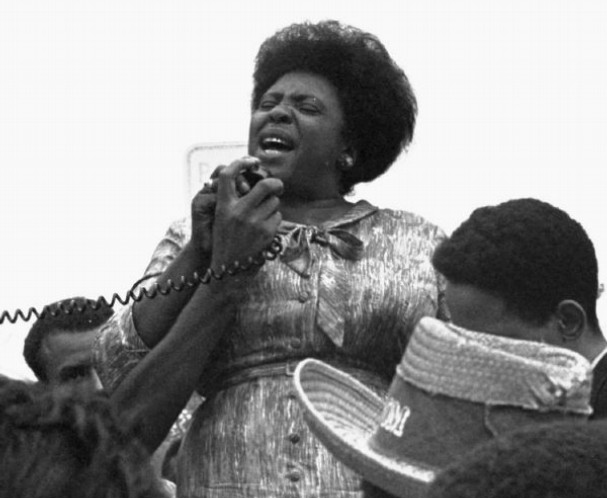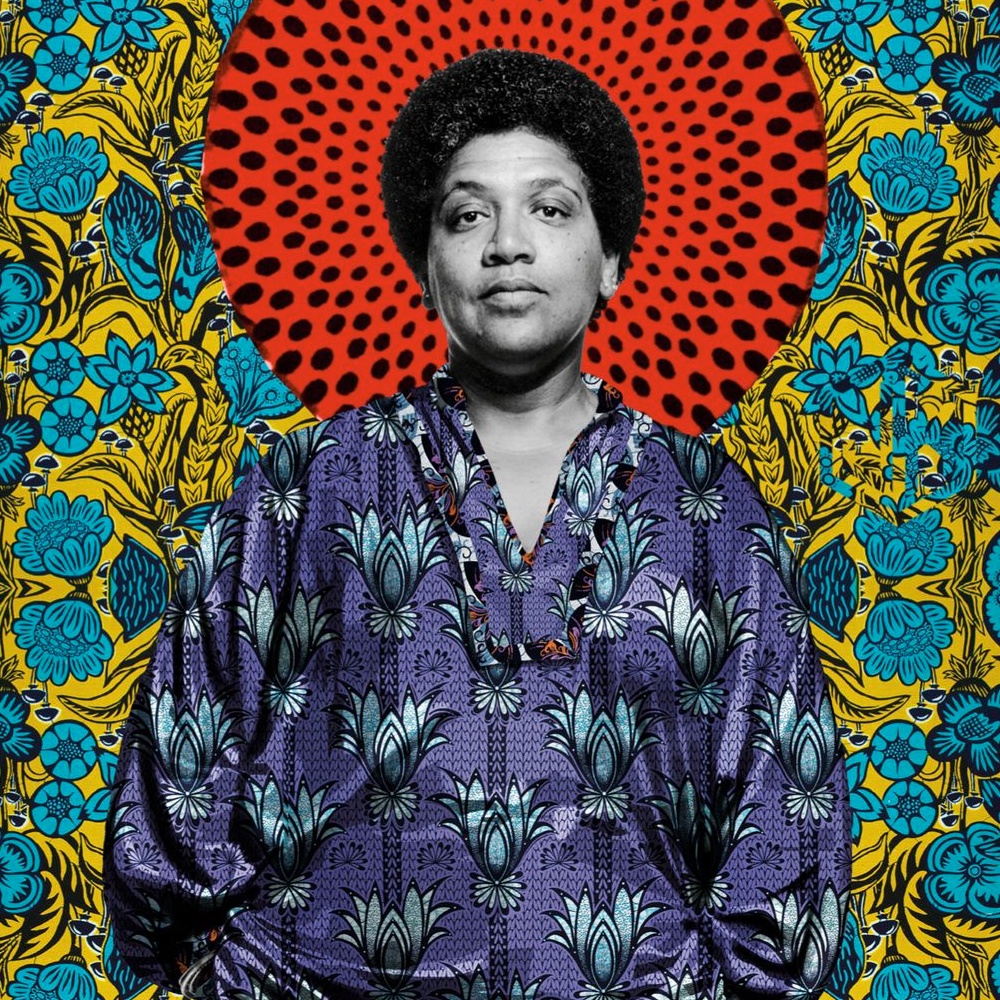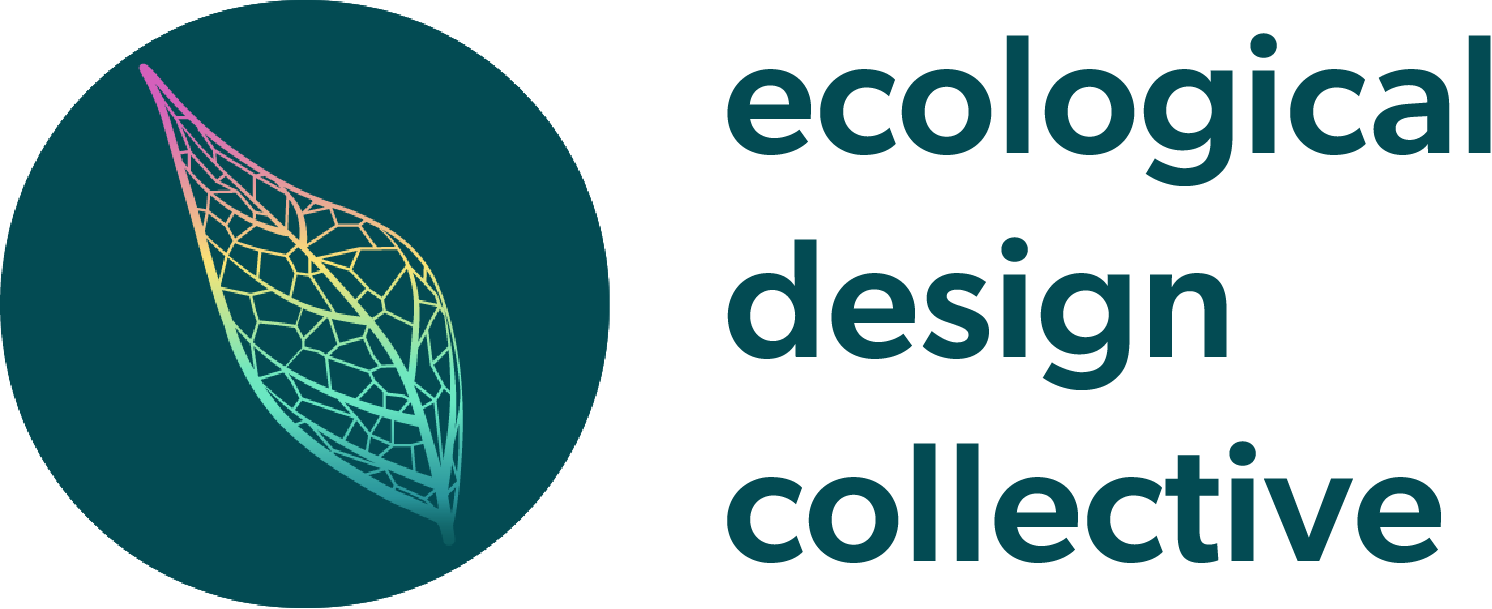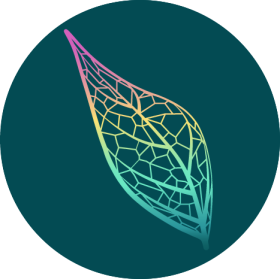One day, I know the struggle will change. There’s got to be a change – not only for Mississippi, not only for the people in the United States, but people all over the world.
Fannie Lou Hamer

We believe in the possibility of radical change and the power of collectivity. We avoid hierarchical structures and operate democratically, with a group of volunteer curators who collaborate to form relationships, grow the collective, plan and host events, and monitor our online spaces. We recognize that the internet has opened up vast possibilities for sharing ideas and engaging in discussions across geographic and ideological spaces, but that for-profit platforms manipulate the content and interactions available to people to stoke contention and resentment. So we’re also committed to using non-corporate, open source, technology for our collective work, and our Groups are invitations for others to do the same.
It is not our differences that divide us. It is our inability to recognize, accept, and celebrate those differences.
Audre Lorde

Connecting. We want the EDC to offer opportunities for connection between organizers, researchers, artists, and activists who are committed to working toward an ecologically just future. We host in person and virtual events that highlight the work of people and groups working in environmental justice, architecture and design, housing justice, land stewardship, food justice, etc. Since the collective isn’t housed in a physical space, we utilize public gathering spaces in Baltimore, campus spaces at JHU and MICA, and cultural spaces like museums and galleries. As our network of collaborators grows, we want to co-host more events with other groups. We’re a small organization, run by volunteers, and we know that working together can allow small groups to have big impacts.
Joining. To join a group you first have to set up an account on the platform. You can find all the existing groups on the Groups page. Groups that are set to private require you to “Request to Join,” but groups that are public will allow you to join right away. The activities of a public group are visible to anyone via the main EDC timeline feed, but you have to join a private group in order to access and participate in that group’s activities. Once you join, those activities will be visible via your timeline feed as well.
Creating. Making a group is simple. Go to the Groups page and select Create a Group at the top of the page. You’ll be prompted to enter a group name and description. You can then set the group to be private, public, or hidden, and determine what actions group members can take. Please think over what arrangement would be best for you. Any member of the EDC can join a public group, while private groups require the organizer’s permission to join. The activities of a public group are visible to everyone, while private group activities are visible only to that group’s members. While private groups are listed in the group directory but require permission to join, hidden groups aren’t visible at all to members on the platform. Please note that EDC platform administrators have access to all groups by system default.
Organizing. The last few group setup pages allow you to decide which features you want available to your group. Once you have the group created, you can invite people to join! If your potential group members haven’t set up profiles on the platform you can still send them an invitation via email, and explain how easy it is to create an account and join. It’s always a good idea to write an initial post in your group discussion forum to invite new members to introduce themselves and engage, and to outline what you want your new online community to become! We have learned over time that groups on the platform will take off best and flourish with the regular and active involvement of organizers. We expect group organizers and moderators to ensure that group activities meet the standards of our Code of Conduct.
Tools. This platform has excellent (free) tools for organizers. Anyone can set up a user profile, engage with the public groups and discussions, and use the EDC virtual meeting room. However, you can also create private groups on the platform, invite people to join, host private meetings in a group video room, make use of group messaging threads, create collaborative documents, and more. All of this is much easier via the EDC’s mobile apps. You can also add your group or organization’s events to the platform calendar. Please reach out via curators@ecodesigncollective.org if we can help in any way!
Moderating a Group on the EDC Platform. As a Group Moderator on the EDC platform, you can contribute to shaping a dynamic and engaged community that explores various aspects of planetary health, sustainability, environmental justice, architecture and design, housing justice, land, food justice, and more. While the following are suggested ideas for the moderator role, they’re not all necessary! These groups are designed and moderated by members for members, so please feel free to adapt these suggestions to suit your own style and the needs of your group. Just keep in mind that groups here thrive when moderators are actively involved in nurturing these spaces.
Content Curation:
- Suggesting and sharing relevant content related to ecological and design themes
- Offering announcements for upcoming events that align with the group’s interests
- Sharing resources such as newspapers, articles, and videos to spark conversations
Community Engagement:
- Initiating discussions with thought-provoking questions or content
- Encouraging active participation and respectful engagement among members
- Monitoring discussions to ensure they remain constructive and relevant
- Reviewing and updating group guidelines to reflect community needs
Promoting Relevant Work and Initiatives:
- Providing a platform for members to showcase their work and seek feedback
- Connecting individuals with shared interests and facilitating collaborations
- Supporting members in promoting their projects and initiatives
Facilitating Events and Activities:
- Organizing virtual meetups, workshops, and themed events
- Fostering a sense of community through online and/or in-person get-togethers
- Collaborating with other groups’ moderators and members to brainstorm new initiatives
Sharing Resources and Opportunities:
- Sharing calls for grants, residencies, and other relevant opportunities
- Maintaining a repository of resources for relevant practices and advocacy
- Exploring partnerships with aligned initiatives

